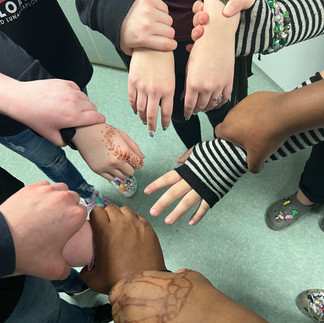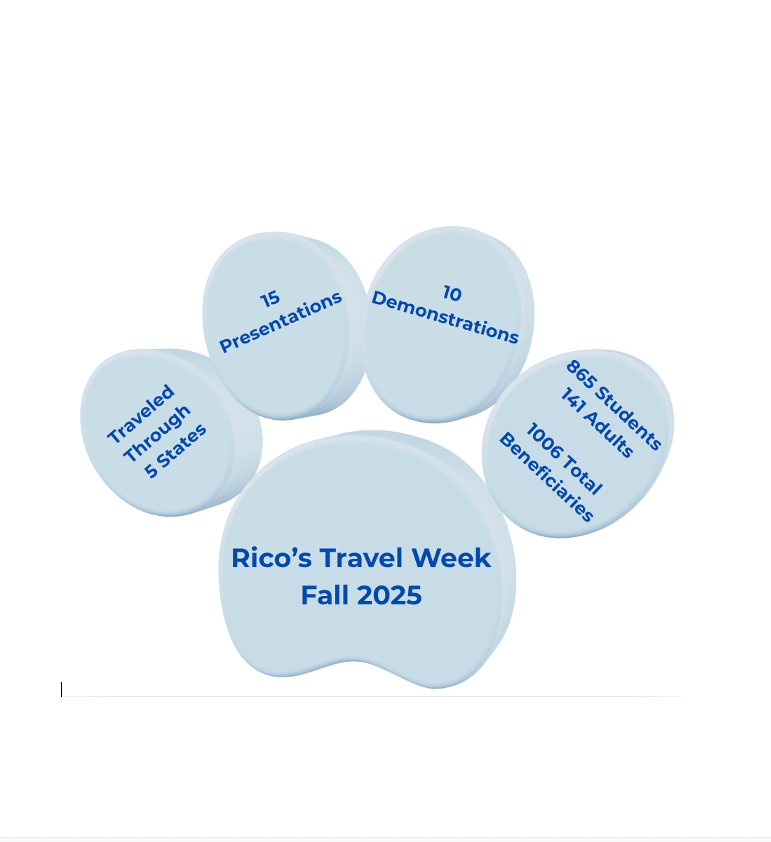PMPS Students Unite for Community Wellbeing
- Luz Angela G.

- Nov 23, 2022
- 3 min read

MLI's Peace Makers and Problem Solvers (PMPS) - 2022 program came to an end in November. More than 30 students, guided by their teachers and fellow student mentors, learned transformational peace building and leadership skills through practical application that impacted their own communities in a positive way.
Beginning in March 2022, MLI united youth from Carepa, Antioquia in Colombia with youth from Baltimore in the U.S. to promote cultural exposure, collaboration, and collective action. During a nine month period, youth gained a better understanding of the challenges in other countries, recognized different perspectives, and built bridges of trust, respect, and peace across cultures. Each group of students implemented the PMPS educational training process through weekly out-of-classroom workshops to develop essential skills needed to act with confidence, empathy, and awareness and to be able to address the U.N. Sustainable Development Goals in their own local context.

Two Colombian Schools together for the first time, celebrating their graduation as PMPS Leaders
Turning Ideas into Reality
After deep diving their communities, participants reflected, discussed, and decided the challenges in their communities that needed to be addressed. Working collaboratively, they designed well-thought-out projects to act and turn their ideas into reality; tangible results to serve the interests and wellbeing of their communities and future generations.
PMPS Students at El Cerro School near Carepa, Antioquia, Colombia developed workshops using creative science experiments to help their fellow students better recognize and manage their emotions. These workshops were part of "The Path to Hope”, a project to help kids understand their thoughts and feelings and enable them to build healthy relationships with themselves and those around them.
El Cerro PMPS students found that kids with healthy social-emotional skills are more likely to succeed in school, work, and life. Therefore, through playful and creative science activities they helped built stronger socio-emotional skills to 60 fellow students to support them resolve conflict, make appropriate decisions, resist negative social pressure, and overcome difficult situations.
The La Provincia School PMPS group believes that peace and safe coexistence contribute to better learning and school performance. Therefore, they decided to implement the "Peace Challenge" project to promote healthier behaviors and positive relationships in the school community. This PMPS group developed weekly recreational and experiential activities with 50 students from 6th to 9th grade, over a 2-month period, to promote peaceful behaviors at school. These activities included workshops focused on life project topics to inspire and empower youth to have clear goals and make wise decisions that lead to fulfilling those goals; walks into nature to foster leadership and teambuilding skills; “English Day” fun activities to create understanding and empathy towards others, among others. La Provincia school community had peaceful spaces and experiences where they could feel safe and fulfilled.
PMPS students at the Sheppard Pratt's residential school and treatment center, in Baltimore, guided by their teacher, acted to make positive choices to work toward enhancing their community, and to bring hope and spread kindness where it was needed the most.
Like their fellow PMPS peers in Colombia, the Baltimore area PMPS students found a way to bring positive change and create a better future for Baltimore’s most vulnerable people. The students identified Franklin Square Elementary School and Harlem Park Elementary/Middle School as two local schools in under-resourced neighborhoods. They decided to collect donations and implement fundraising activities to provide 225 backpacks full of school supplies the students needed.
Additionally, they implemented action plans in their school community to help fellow students resolve conflict. PMSP students drafted an in-house mediation protocol so they could serve as neutral third parties to help disputants come to consensus on their own. More than 60 disagreements were successfully solved by these trained peer mediators. As the mediators worked with the conflicting sides, they helped them explore the underlying interests beneath their positions, brainstorm possible solutions, and decide the best option for both sides. This mediation program is promoting continued growth for many, as it will continue to help settling differences across the school.
Over the past four years, Colombian and U.S students have engaged in constructive cross-cultural dialogue and worked collaboratively to implement service-learning projects targeting their communities' needs. Young leaders have addressed bullying and mental health campaigns in their school communities, taught socio-emotional skills to elementary school students to prevent violence, led digital campaigns to highlight food insecurity, and promoted healthy habits to their fellow community members. The power of our youth to address critical needs in their communities has been heartwarming to see. Through these projects, students have learned their power in molding a better and more peaceful future for themselves and those around them.
Link here to help expand leadership and problem-solving skills and to empower youth in Colombia and the U.S. to rise above surrounding pressures, and to support a culture of engaged youth committed to a lifetime of service.
























Comments